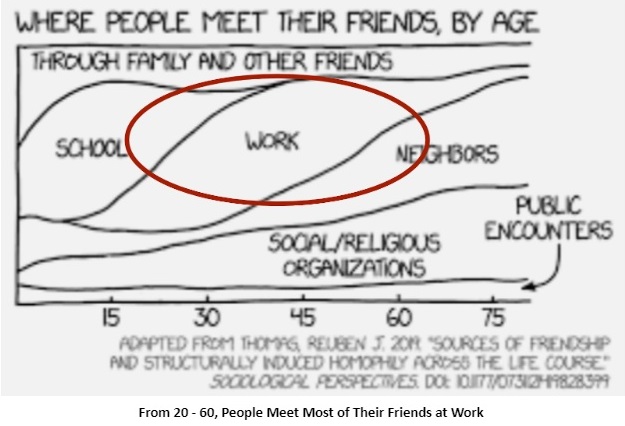In these times, double down — on your skills, on your knowledge, on you. Join us Aug. 8-10 at Inman Connect Las Vegas to lean into the shift and learn from the best. Get your ticket now for the best price.
In an abrupt shift from giving employees the flexibility to work remotely following the COVID pandemic, Redfin CEO Glenn Kelman told employees on Monday that they’ll be expected in the office starting in July.
Kelman, who once told employees they wouldn’t be expected to return to the office, said employees living within 20 miles of its offices in Seattle, San Francisco and Frisco must work in the office on Tuesdays and Wednesdays. Anyone living outside the 20-mile radius must make quarterly visits to the office, Kelman said.
The change doesn’t apply to Redfin agents, who are considered employees of the company but are not among those headquartered at Redfin’s main office.
The about-face marked the latest major company to attempt to move away from complete remote work three years after the pandemic rocked downtown areas across the country, and it comes as Redfin tries to dig itself out of a financial hole.
Part of that work, Kelman said, starts with improving the company’s culture.
“I’ve concluded that a change is necessary to our culture,” Kelman wrote in an email also published on the company’s blog. “It has become clearer over the past year that the culture we’ve developed around remote work has been at best good, not great.”
Kelman said in early March 2020 that “I’m not sure when we’re going to ask everyone to come back to the office,” according to a Seattle Times article from the time. He added that “we may look back on the virus as a tipping point in how people work together…I think what’s hard is just the emotional part of being at work.”
Employees aren’t forming strong relationships with each other through virtual meetings, the CEO wrote, and the problem has gotten worse as teams change over and new employees come on board.
Kelman said the decision might help the company recruit a more diverse workforce, help employees bond with each other and perhaps improve its financial performance.
It might also be the final straw for employees who have survived several rounds of layoffs at the company in recent months, which shed over 1,000 positions from the company’s total workforce.
“Some people will quit over this decision, others may dislike it, but no one can say we haven’t made it deliberately,” Kelman wrote. “I’ve read thousands of surveys, communicated with hundreds of employees, answered all sorts of questions at meetings and on Slack, and met with nearly a dozen execs or CEOs who fell on different sides of this decision.”
To determine whether employees will be required to return to the office, Redfin will rely on the driving distance to the office as determined by Google Maps. Those within 20 miles must return for at least two days a week. Those outside the radius can choose whether they want a permanent desk or a “hotel” style desk for drop-in visits.
“We’ll keep honoring medical accommodations that prevent employees from working in the office, but otherwise we don’t plan to make exceptions,” he wrote.
The company will offer commuter subsidies to cover parking or bus passes.
It will also come as a burden to some employees who have grown used to the flexibility of working remotely, he said. Kelman said he’s been coming to the office daily the start of the year and noted “at first, it was depressing” because of old memories and an empty office.
“Nothing could offset these costs except how much better people connect face to face,” Kelman said. “And nothing else matters in any collective effort without those connections.”
He also hinted at trouble the company faces amid an ongoing housing downturn, saying being together might help the company “climb out of the hole the market has put us in.”
Redfin reported losing $321.1 million last year, more than double the losses it reported in 2021. Its next financial results will be reported on May 4.
The widespread, abrupt and ongoing shift to remote work has been a driving force in the drop in demand for office space.
Some of the world’s largest companies have recently begun requiring employees to come back to the office.
Amazon, Apple, Disney, Google, Goldman Sachs and others have begun requiring employees to come work in person on at least a part time basis.
Read the full letter Redfin CEO Glenn Kelman wrote to employees
Redfin CEO Email on New Hybrid-Office Policy
Our CEO, Glenn Kelman, sent this email to all Redfin employees at 2:00 p.m. PDT on April 23, 2023. For the public posting, we removed links to our intranet.
Dear Redfin,
Starting Tuesday, July 11th, Redfin is requiring headquarters employees who live within 20 miles of our Seattle, San Francisco, and Frisco offices to work from the office for a full day on Tuesdays and Wednesdays. We’ll also ask headquarters employees living beyond this 20-mile radius to travel once a quarter to a headquarters office for a day or more of meetings.
Yes, This Is a Big Change
This will be a big shift in how many of us work, and a change in course, as I once said that we don’t plan to require headquarters employees to come back to the office. We don’t make such changes lightly; work is hard enough without imposing unnecessary obligations on any of us.
The Reason for the Change: Culture
But I’ve concluded that a change is necessary to our culture. It has become clearer over the past year that the culture we’ve developed around remote work has been at best good, not great. As teams have changed, we haven’t been able to draw as much from our pre-pandemic relationships; it has been harder to form new relationships with people we see only in virtual meetings.
People Connect Better Face to Face
We don’t pretend this decision doesn’t have tradeoffs: local employees will spend time commuting instead of working; remote employees will feel left out if we aren’t careful about being inclusive; many of us will come into an office only to dial into a virtual meeting; it will get harder in some ways, and maybe easier in others, to recruit people, including diverse people. Nothing could offset these costs except how much better people connect face to face. And nothing else matters in any collective effort without those connections.
Our Plans Have Changed Because the World Has Changed
That is especially true now. Since we announced our support for remote work, a steep housing correction has turned our world upside down. Some people may feel that, regardless of whether or when the pandemic ended, the need to bring everyone back together came out of the blue. To me, it feels like a semi smacked into our little Honda Civic, sending it end over end down a ravine, and when by some miracle our car landed wheels up, on a road, mostly intact, one of the people in the car looked up from his book to ask if anybody turned off the cruise control, and are we still going out to eat?
The Only Way to Get to the Mountaintop is Together
Even the most battle-hardened among us has felt daunted by what this still-beautiful company has had to overcome. We’re starting to do better, and maybe much better, but we have to fight like animals to climb out of the hole the market has put us in and then to get to the mountaintop. If we think our best chance to do that is together, and I do, then we have to climb together. Please don’t ask me to make decisions on any other basis.
My Own Experience: At First It Was Grim, Then It Was Good
And even though the basis for this decision is what’s best for Redfin, maybe it will also be better for you. I’ve been coming to the office almost every weekday since the start of 2023. At first, it was depressing because my office was piled high with old junk, and the office was mostly empty. I missed seeing my kids come home from school. But then I cleared my desk, and got to know some of the folks who started drifting in.
The Decision is Best for Redfin; Maybe It’s Best for You, Too
It has made me happier. It has made it easier to talk casually about a quick question, or more intensely about something thorny. And now at home, my kids yell at me when I walk in, instead of my yelling at them. Others at the office have gone through the same adjustment; one asked if I’d one day want my own children to start their first job at a place like Redfin, since it has become all-remote. I realized that, for the first time in my life, the answer to that question was no.
The Kid Test
At an all-remote office, employees are far less likely to connect with a mentor, let alone any new friends. Every day is mostly painless, but less satisfying. I still work from home on days when I need to crank stuff out, but that isn’t the only kind of work each of us does, even the loneliest engineer or designer. We have obligations to one another, on our own teams and beyond.

No Exceptions
To determine your distance from an office, we’ll use Google Maps, with the distance from your home address measured in miles driven over roads by car, though of course you’re also welcome to walk, or take a bus or bicycle. We’ll keep honoring medical accommodations that prevent employees from working in the office, but otherwise we don’t plan to make exceptions.
If Something Crazy Comes Up, You’ll Have the Latitude to Deal With It
For two weeks a year starting this July, headquarters employees can work from other locations the entire week, but one of those weeks has to be after September. Deliveries requiring a signature and other events requiring you to be at home should generally be scheduled for Monday, Thursday or Friday, but if something unexpected comes up Tuesday or Wednesday, just let your manager know, and stay home to deal with it. Commuter subsidies will be available to anyone coming to the office, and can be used to pay for bus passes or parking spots.
Many Roles Will Be Hired Around Hubs
Requisitions by default will be to hire headquarters people who can be in the office, but the hiring manager can get an exception with the approval of an operating-committee member, on a role-by-role basis and sometimes for a group of roles. We don’t have to set up a process for handling hundreds of roles now, since we aren’t hiring much.
Local Employees Outside the 20-Mile Zone Will Lose Desks Unless You Say Otherwise
We’ll need to consolidate desks so we aren’t so spread out. If you live outside the 20-mile commute zone but plan to come in every week on Tuesdays and Wednesdays, please let us know next week, following instructions you’ll get on Monday, May 1, in an email from our facilities team. If you don’t plan to come in every Tuesday and Wednesday, you’ll lose your permanent office, and instead get a hotel-style desk for drop-ins.
A Carefully Considered Decision
We’ll make refinements to our hybrid-work policy, gathering feedback via surveys on what’s working and what isn’t, for the people coming into headquarters and for those dialing into meetings too. But we aren’t asking for any further feedback on the decision itself. Some people will quit over this decision, others may dislike it, but no one can say we haven’t made it deliberately. I’ve read thousands of surveys, communicated with hundreds of employees, answered all sorts of questions at meetings and on Slack, and met with nearly a dozen execs or CEOs who fell on different sides of this decision.
We Want Every Employee to Stay
One employee asked me if I *wanted* some of you to quit. No! After all the layoffs we’ve been through, the people still here are the best of the best. We want you to stay and to put a bit of yourself into the culture we’re building anew; we want you to thrive. But stay to make this work, not to make it fail. Regardless of how you feel about this decision, we need you to commit to it. There are many forks in the path to that mountaintop, but the only way to get there is together. We’ll address questions about this policy at tomorrow’s all-hands meetings, but in the meantime, you can read the answers to likely questions about hybrid work on our intranet, or you can always reach me by phone, text, email or Slack.
Best, Glenn













